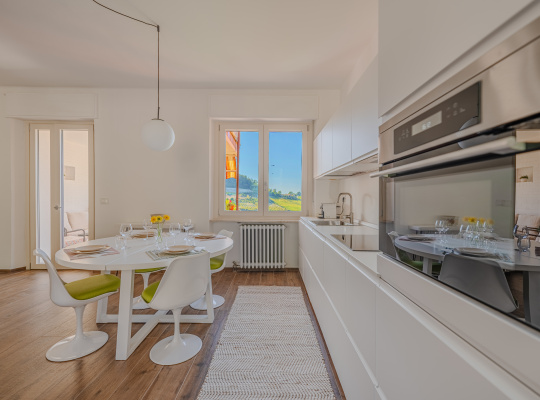
v
In order not to get unprepared, let's talk about how to safely rent a house in Italy. First of all, you need to carefully choose a landlord, analyze the price ratio in the market, and look at recommendations.
Are there any rules to follow?
Surprises can never be predicted. There are situations that are impossible to imagine. The Covid pandemic is a prime example of how unpredictable and unimaginable causes can be. The only way to avoid bad surprises is to take it for granted that there is no tenant who will always pay on time. Therefore, it is necessary to have a financial guarantee, protection from unforeseen situations. As an example - when we buy a washing machine, if it breaks down there is a legal guarantee.
Generally, owners of premises in Italy include a security deposit in the contract to cover any damage or debts left by the tenant at the end of the contract. Some ask for an advance monthly payment, other bank guarantees, depending on the individual characteristics of the lease.
What aspects should be considered and what should be paid attention to?
Income / Rent Ratio: Italian law requires the salary and tax return of the renter: so that rental costs do not exceed 40% of disposable income. For example, for those who earn 1,500 euros a month, this would mean renting a property for a maximum of 600 euros.
How does the cost sharing between tenant and landlord work?
The classic division in Italy stipulates that the costs of routine maintenance (minor repairs, cleaning the boiler, cleaning stairs, etc.) are borne by the tenant, and more serious, for example, the replacement of systems as a whole, lies with the landlord, if this did not happen through the fault of the tenant ... As an example: if the boiler needs to be replaced because it is old and worn out, then the costs are borne by the owner, at the same time: it needs to be replaced because the tenant negligently did not care about the maintenance of the boiler and, thus, put it out of order, then the costs are borne by the tenant. In any case, all possible situations are stipulated by the contract.
Are there any regulations governing the tenant-owner relationship that are good to know?
For cost sharing, there is a very convenient detailed table in which expenses are differentiated between the landlord (owner) and the tenant.
Among the main Italian normative documents there are references to articles of the Civil Code, which define in article 1575 the main obligations of the owner (renting the property in good condition, maintaining this condition during the term of the contract and the lawful use of the property by the tenant) and in article 1587, which recommends to the tenant “ to accept the premises, to comply with the terms of the contract. "
Services

24/02/2023
Visa Residenza Elettiva

06/10/2022
Why do you need a residence permit in Italy.

06/10/2022
Buying a house on lease in Italy

06/10/2022
Where to live for a student in Italy

06/10/2022

